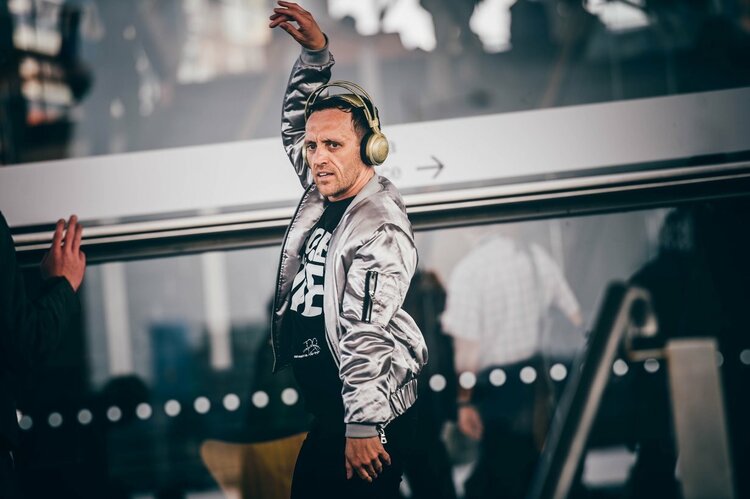
Hi Gwyn, great to meet you, can you give our readers some background information on yourself please?
Hello there, lovely to meet you too. I am a choreographer, performer, teacher and, I guess, producer now too. I have mainly worked in contemporary dance and dance theatre.
What got you interested in the arts?
I was born and raised a borders boy in Montgomery in a tied-house to my dad’s job as a farm labourer. The arts didn’t feature at home, we didn’t have any books but watched a lot of telly. It was probably singing and performing in school plays and dancing folk dances in primary school, where the performing seed was sown.
I kind of fell into contemporary dance though after doing a drama GCSE at school. My friend who went on to Newtown college to do performing arts convinced me to try it for the acting but I took my first contemporary class and that was that. As is quite typical of coming from a farming background, I wasn’t particularly confident in speaking so doing and moving was a way for me to express myself and in a way I’d never been able to before. Whilst I was at college Diversions Dance Company (now National Dance Company Wales) came to give a workshop and performance where I met Jem Traeys (who was dancing with the company at the time). Jem encouraged me to think about taking dance seriously, it was then that I decided I would go to university to train as a dancer.

Although I knew I wanted to dance I had no idea how to make a career out of it. No one in my family had ever done anything like that before; they were all farmers or worked in the local factory. I needed a lot of support and help from my lecturers and because of them I eventually went to university in London. It was there that I first realised I might actually be any good. I loved how my body was developing, the feeling of being part of a family with my fellow students when we made work together and the sense of purpose and identity it was giving me.

After university, I went on to dance with some amazing companies both in the UK and Israel, was rehearsal director for some wonderful choreographers and I’ve also taught all over.
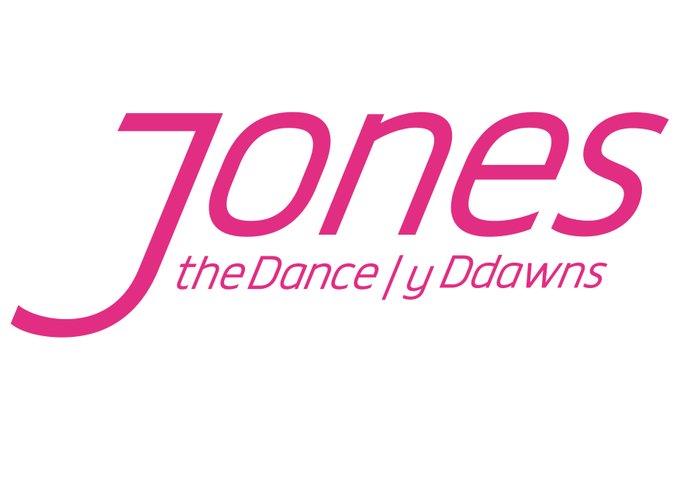
You are the Artistic Director of Jones the Dance (formerly Gwyn Emberton Dance) the organisation’s mission is “Extraordinary dance theatre that is globally inspired, made from the heart of Wales.” How did the organisation develop and what are you working on at the moment?
Originally Jones the Dance / y Ddawns was called Gwyn Emberton Dance. It was the company I set up in 2013 to create and tour my own group works. As the company grew over time, we started to do more and more things beyond my own work, such as our summer schools in Newtown and supporting other Wales based artists to lead or take part in the international projects we were involved in.
Particularly in our youth projects, including Quiet Beats our workshops for Deaf young people, I realised we were trying to create a place where dance was available to those who had little opportunity or felt dance just wasn’t for them, whether this was due to geographical barriers or being part of a community where you just didn’t dance.
There is still little infrastructure for dance in Wales with less and less dance happening in schools and it is only down to a few really dedicated people that any dance exists for young people outside of the traditional local dance schools – something which was the case when I was young over 30 years ago. If we don’t change this it will be the same again in another 30 years and our young people won’t get to experience the joy, creativity and, in my case, the life changing opportunities that dance can offer.
We wanted to shift the company even more in this direction and with that we felt Gwyn Emberton Dance wasn’t the right name any more. So we changed it to Jones the Dance in April this year – ‘Jones’ because it’s a really common name that many of us in Wales identify with (half my family are Joneses) and ‘the Dance’ because it is a fun and lovely way of talking about someone and their job in Wales.
We are working on a few things at the moment, coming up later this year and into next. We are developing our youth projects Quiet Beats and Jones Bach to run more regularly throughout the year, looking at a dancers’ creative development project with some really cool partners across Wales, finishing my next work which will be a new dance film production that has been on hold since before the pandemic, and we are just starting to work on the next edition of iCoDaCo, the international collaborative project we are involved in, to start in 2022.
You can read review of (iCoDaCo), It Will Come Later, by Eva Maloes here
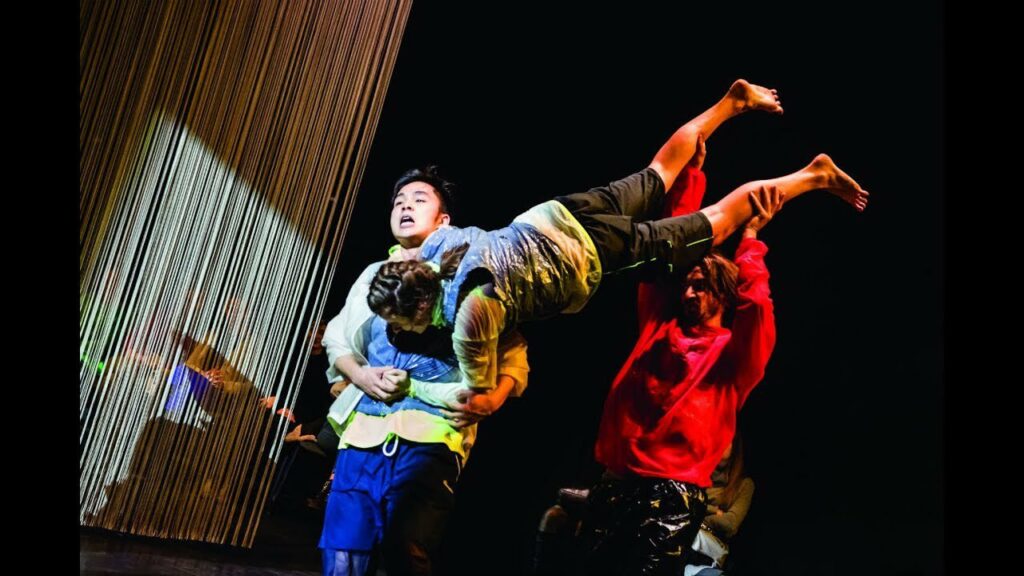
The dance sector and your work as a dance artist is inherently international, Brexit and Covid -19 must present some challenges, how have you worked to overcome them? Do you have any future plans for UK and international touring?
You are right, international work has always been a huge part of what we do. International collaboration is incredibly important to us and feels even more so since Brexit. With our colleagues at ilDance who initiated iCoDaCo, we have been talking about the implications of traveling and touring internationally before the pandemic. A significant part of the next project will be focused on how we can still collaborate but environmentally sustainably so. We are looking at what digital technologies we can use, how to share knowledge and experience across cultural, political and language borders.
With Brexit we are still trying to understand the implications it has for us as a small dance company. We are not sure what our options are yet for iCoDaCo and whether we can raise enough funding for it. The last edition of iCoDaCo we were eligible to be partners in European funding which meant we were able to access the huge potential for us as a small company to offer lots of people work in Wales, as well as bringing a huge project to audiences and the public here. It will be a devastating loss on so many levels if we can’t be involved, both to the artists who would work on the project and to audiences. We are happy that our colleagues in Europe still want us to be involved even though it will present them challenges so fingers crossed. We are determined to make it happen so watch this space.
With Covid, I have reimagined my new work for film instead of a touring theatre show. It will be shown in really exciting ways which has actually unlocked the possibility to share the work with different audiences in different spaces and communities all over Wales.
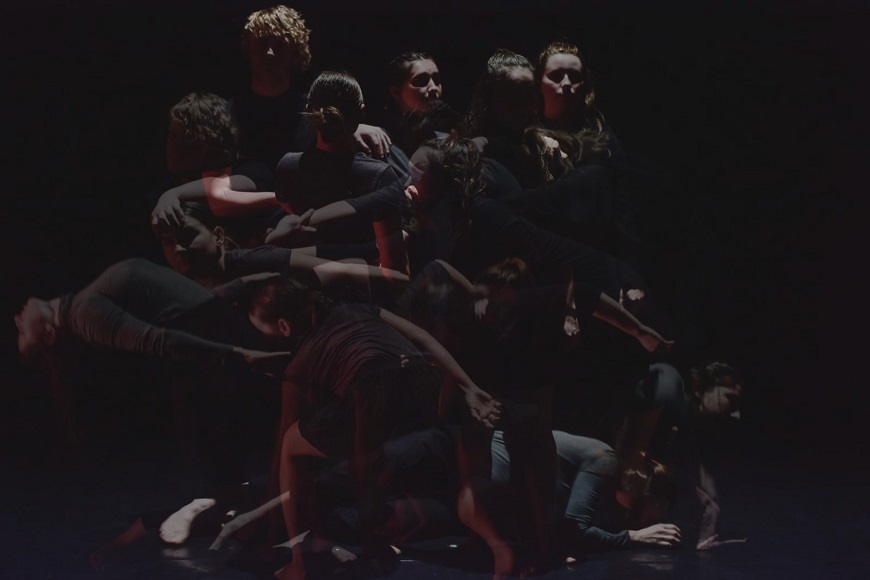
Between May 2018 and October 2020 Gwyn you were the Programme Director of Dance at University of Wales, Trinity Saint David.What was your approach to the course delivery and what aspirations did you have for your students?
I really wanted to make the course a place for those who had somewhere to go in Wales to train and study dance. We took a rigorous approach to training which was supported by theoretical and practical knowledge acquisition. I was very keen to make sure the students had lots of opportunities to work with a range of different artists from different backgrounds and in different styles, from Wales and internationally such as Moya Michael from Belgium, Kiani Del Valle from Berlin, Matteo Marfoglia, Zosia Dowmunt and Jonny Vieco from Wales and the UK for instance.
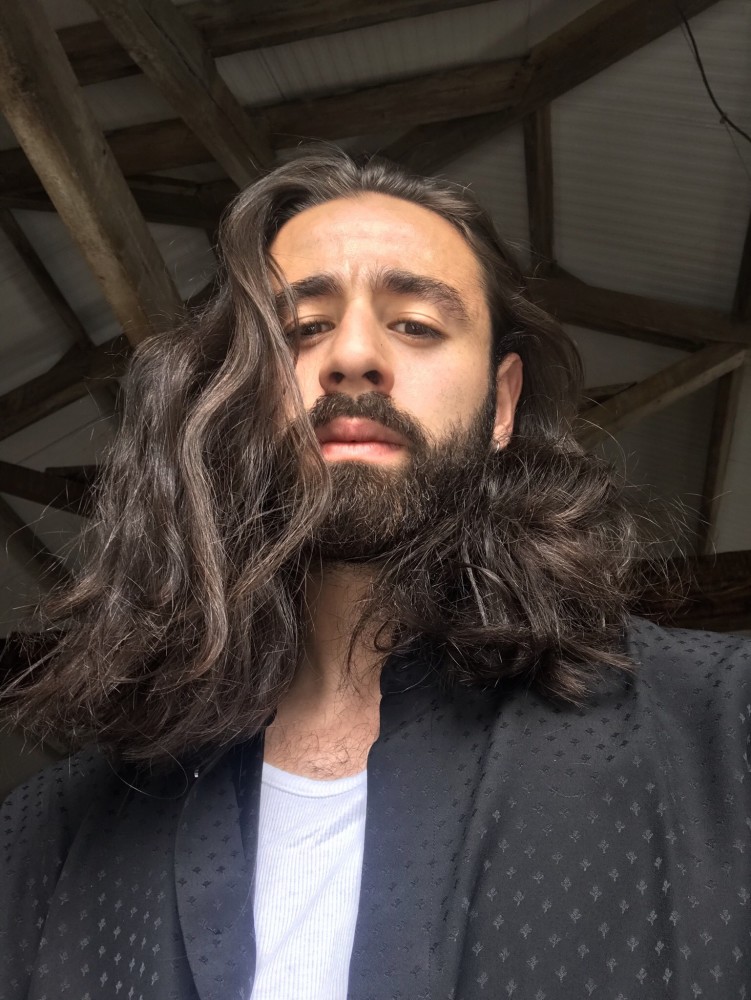
Jonny Vieco 
Zosia Dowmunt 
Matteo Marfoglia 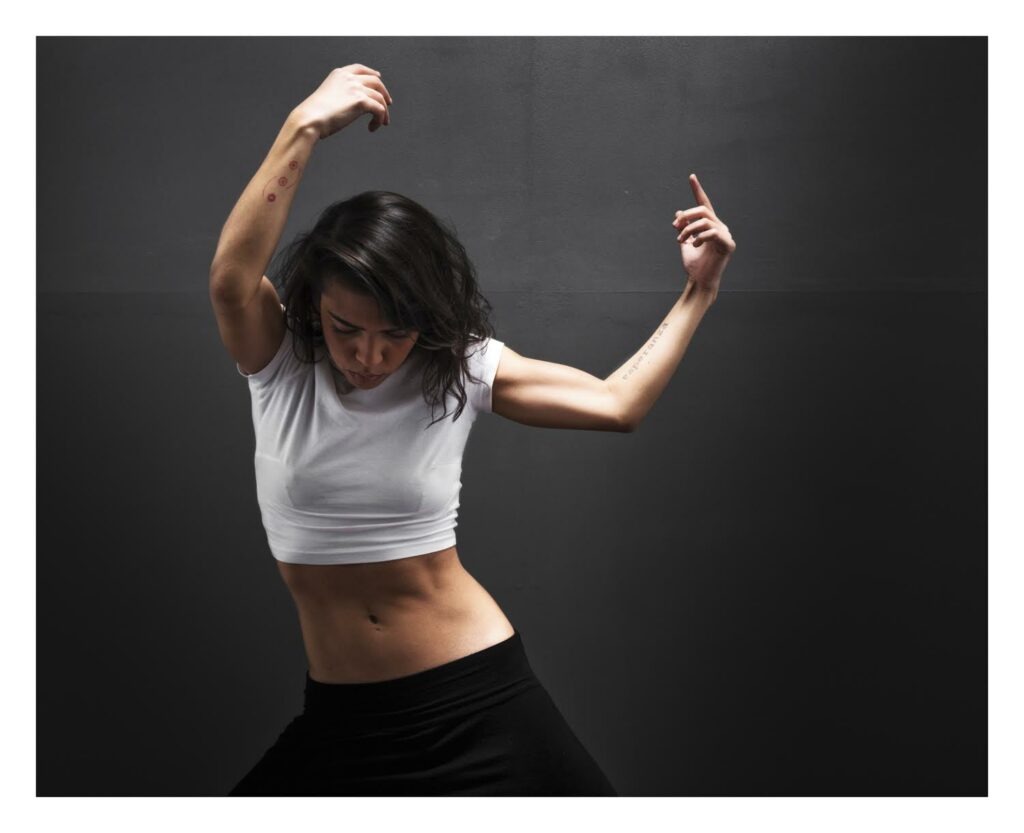
Kiani Del Valle 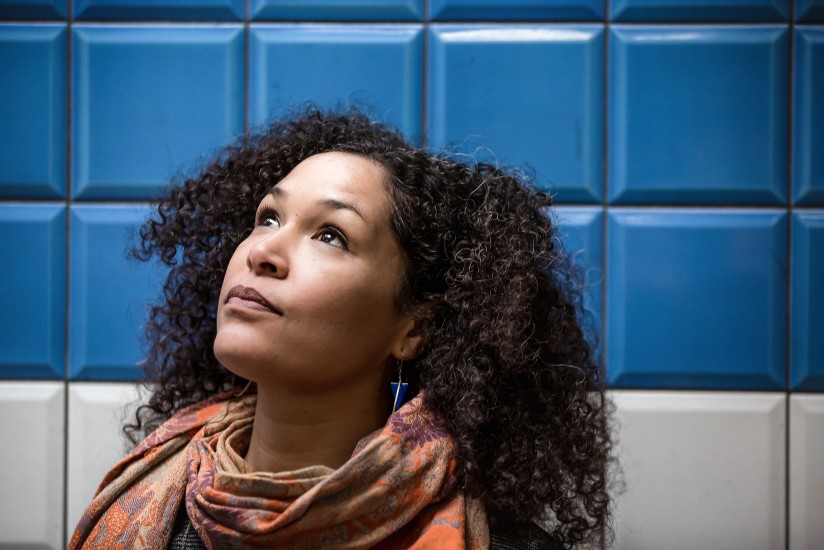
Moya Michael
I was hoping that each student had the autonomy in how their degree developed by the time they left whether that was creatively/choreographically, academically, or through a dance health route. It is such a shame that this course will close, as will the one at University of South Wales. As a whole arts community we need to address this. It seems completely unfair that there will be no conservatoire or place to study and train in dance in Wales, when many courses in Welsh and English exist for theatre and music such as at Royal Welsh Collage.
We recently interviewed Kokoro Arts and shared their response to this question
If a dancer wanted to stay and train in Wales and then pursue a career, what support system would you suggest they require in order to be able to do this?
What would be your response?
There are no options at the moment as there is no training which I mentioned above. However, we need to think much more cleverly than just that. The whole infrastructure needs to be looked at for dance in Wales. It needs to have an equal place in how we see our cultural heritage in the same way that theatre and music is. Look at folk dance, probably everyone has done it in school at some point but then it just drops off. It should be the foundation for dance in Wales but there is nowhere to take dance further especially if you can’t afford to go to a local dance school. There are all these amazing youth groups around Wales but there is nowhere to take it beyond that. There is zero dance in secondary schools, no GCSEs or academic qualifications which are the most usual routes for kids to pursue dance later on.
Every dancer or person working in dance that I know in Wales is trying to link up, find creative ways to counter all the structural challenges we face but it just isn’t enough. It has to come from the government and the willingness to see dance as a cornerstone of a vibrant, varied Welsh cultural life and see its importance in and relevance in all of our lives. We need some kind of manifesto for dance that we can all get behind.
We have so many of the components already; community, professional, theatre, digital, street dance, contemporary, folk dance, twmpath, classes and performances. We just need to connect and build on them through education, the right support and a commitment to implementing the required infrastructure.
You also responded to the additional statement from Kokoro below on Twitter
“For organisations and project funded companies to regularly advertise for new dancers rather than turning to those they already know.”
You said the below, is there anything more you would like to add?
Absolutely!!! As Gwyn Emberton Dance & now @JonestheD we’ve done and will do this. We always advertise for new dancers but we also work with people we’ve worked with previously. We’re not in the luxury position of a regularly company that employs their dancers for the whole year and year after year. The artistic understanding you have with someone over years is just as important as the new relationships you build and also the opportunities you can create. It is a question of how to strike the balance between making sure we are creating opportunities for new dancers to work with us and develop as artists and the need to maintain and build a shared artistic practice over years. This has to be a consideration. We’re working with our board at the moment on developing our open call policy & this discussion is part of that.
As a project funded company we are limited in how often we can offer/create opportunities due to the sporadic and precarious nature of funding and how we work. We’ve lots of amazing plans coming up in the next few years but without support none of them will happen. My final thought on this at the moment as a choreographer it can be an isolated place so having relationships with long-term collaborators is hugely valuable just as it is so important to meet and support new dancers/artists who they bring their own richness to a creation.
I will add that there needs to be more opportunities across Wales for dancers and choreographers to develop their own work too. We have nothing like Wales Dance Platform any more, where I first presented my work in Wales, or Dance Shorts that Dance Blast used to run.
You can read a review of Wales Dance Platform 2014 by Hannah Goslin here
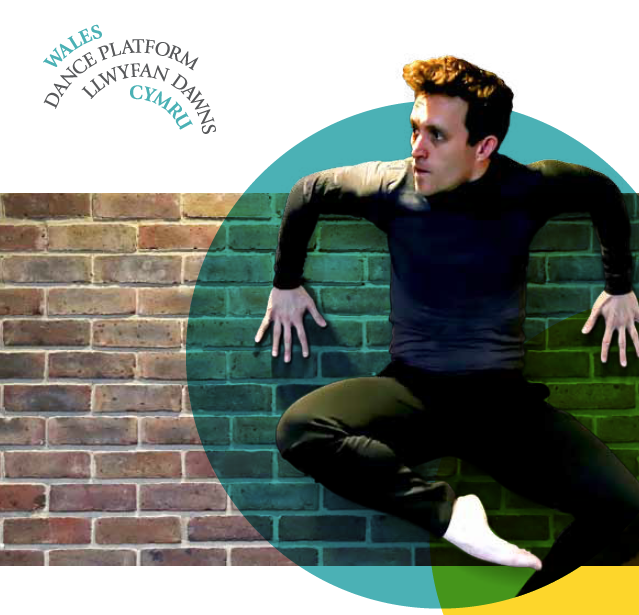
They were both brilliant opportunities to get your work and name out there and filled the diary with dance work for both choreographers and other dancers. There is nothing like this any more and we are all poorer for it.
Through the dancers’ creative development programme we hope to give a few dancers opportunities to develop their work, skills, networks which will also give other dance work too. However, this is only a small part of what needs to be available.
Thanks Gwynn, you are passionate about creating dance experiences for those who don’t usually access the art form. In October 2020 you set up the pilot project Quiet Beats, the dance workshops for young Deaf people and building on its success, the second week of workshops were held in February 2021. Do you have any learning you would like to share from this work and ambitions for its future development?
We knew we wanted to do this project for a while. We had been questioning why we had never met any young Deaf people in our summer schools. After some research and talking with Deaf colleagues in theatre we realised that there is this misconception that Deaf people can’t or shouldn’t dance which stopped young Deaf people taking classes or workshops, thinking it wasn’t for them or that they wouldn’t be very good. We were very conscious that we were coming into the Deaf community as hearing people and that people may feel wary of us so it has been about building relationships with group leaders, charities, parents and guardians and most importantly they young people who have taken part. There is still so much to do and so much for us to learn if we want this project to really take off with young Deaf people from all over Wales dancing any style in an environment where they are happy to let go and enjoy themselves.
Get the Chance works to support a diverse range of members of the public to access cultural provision. Are you aware of any barriers that creatives in Wales face? If you are, what might be done to remove these barriers?
We need to rethink what professional dance is and who makes it. Contemporary dance has become professionalised and has received a lot of support comparatively to other dance styles although not to other art forms. There are other dance styles which are reflective of other people’s experiences and backgrounds which need to have the same recognition. Linked to that I think the fact we don’t have dance as part of core education and there isn’t a conservatoire for dance in Wales really impacts the perception that dance can be a career. This is a barrier for everyone but particularly if you come from a community where dance isn’t seen as a profession or your style isn’t contemporary or ballet based.
Also, I dont know of, or am not aware of, any Welsh dancers who are Deaf or have hearing loss but maybe one day one or loads of our Quiet Beaters will become dance artists for Jones the Dance making their own projects. There needs to be more visibility of artists or people working in the arts who come from different backgrounds so that the younger generations of dancers coming through see it as a possibility. They need to have people to look up to and to speak with about their own careers.
Working in dance in a rural setting can be really challenging as there just isn’t the resources, space needed or other people to work with.
With the roll out of the Covid-19 vaccancies, the arts sector is hopeful audiences will return to venues and theatres. If theatres want to attract audiences what do you think they should do?
Take it slowly but start already!!!! Be imaginative, creative and curious with what you are offering. Trust and let us artists lead the way, as we have been thinking for the last 18 months how to make our work safe and secure for audiences. If sports can have fans then why can’t theatres open their doors.
If you were able to fund an area of the arts in Wales what would this be and why?
Obviously, dance. I would want to create more opportunities for people to be making more work, supporting them in making it more public and for it to be recognised. Perhaps a dance festival, digital and face to face, with lots of exciting opportunities for audiences to experience different types of dance and performances.
What excites you about the arts in Wales?
Wales has so many incredible artists, stories and experiences to share in their work, there are so many voices who we don’t hear from but also we have such a legacy of incredible experienced artists that show what a vibrant, creative and dynamic place Wales is.
What was the last really great thing that you experienced that you would like to share with our readers?
I have talked about it so much already but it has to be Quiet Beats. We invited Chris Fonseca to lead the week of workshops, he is a Deaf urban dancer and teacher.
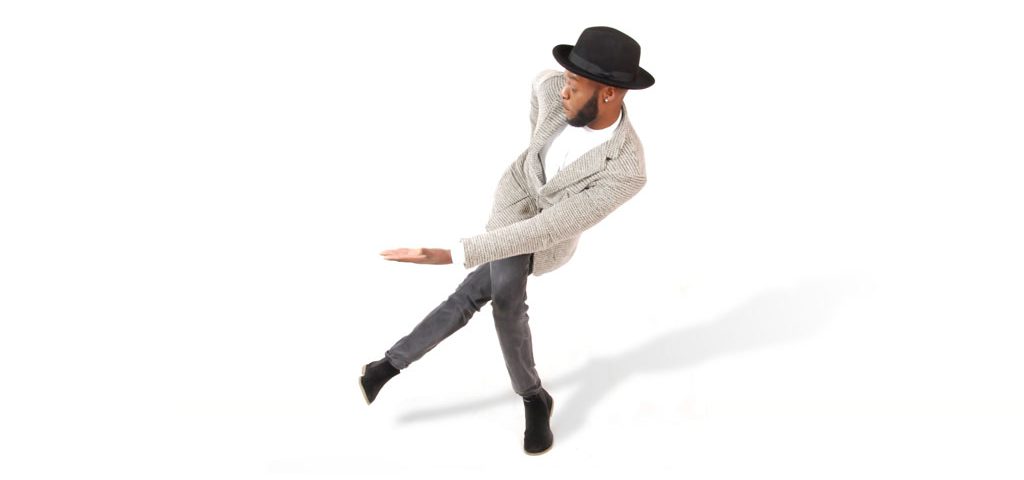
He taught this super cool phase to the young people which they performed at the end of the week. I was so impressed with their focus and commitment, how they dealt with being on Zoom the whole time, and the development of their skills in just one week was phenomenal. One of the participants mum’s emailed me afterwards to say he hadn’t stopped dancing for the next week – there’s a dancer right there!
Thanks for your time Gwynn.
Get the Chance supports volunteer critics to access a world of cultural provision. We receive no ongoing, external funding. If you can support our work please donate here. Thanks.
